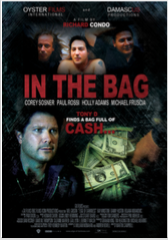TORONTO — Walmart Canada Corp. is cutting ties with Weston Foods, the Financial Post has learned, months after the bread supplier and its corporate affiliates acted as whistleblowers in an alleged 14-year scheme to fix the price of bread in Canada.
Weston Foods, the fresh and frozen baked goods subsidiary of George Weston Ltd., the largest shareholder of Loblaw Cos., was informed by Walmart of the pending ouster in a letter earlier this month, sources said, a decision confirmed by Walmart Canada on Friday.
The news comes five months after Canada’s biggest grocer and George Weston sent shock waves through the industry after admitting they co-operated with a Competition Bureau probe into alleged collusion between Canada’s biggest bread producers and several large retailers, including Walmart.
“We’ve informed Weston Bakeries of our decision to reduce the number of suppliers for the commercial bread area,” Anika Malik, spokeswoman for Walmart Canada, said in a statement on Friday. “This decision was motivated by commercial reasons, not the Competition Bureau investigation. We continue to strive to provide our customers with the best value and service for all products.” The retailer declined further comment.
Currently, Walmart sells Weston-made commercial bread brands such as Wonder Bread, D’Italiano and Country Harvest across the country, but will stop carrying those products over the next couple of months. Industry rival Canada Bread, whose brands include Villagio and Dempster’s, remains a supplier.
“We understand that some will draw the conclusion that this relates to our decision to report illegal activity in the industry,” Weston Foods said in an emailed statement on Friday. “We don’t see it that way.” Weston Foods has “always had a good relationship with Walmart Canada,” it said. “We continue to have conversations about our future working together.”
The Competition Bureau’s ongoing investigation, which has not yet resulted in charges being laid, began in March 2015 after whistleblowers at Weston and Loblaw approached the federal department in order to disclose their participation in the alleged scheme.
Court documents unsealed in February allege Canada Bread and Weston, the country’s top two bread producers, participated in a price fixing scheme with major grocery retailers including Loblaw, Walmart, Sobeys, Metro and Giant Tiger that inflated the price of bread by at least $1.50 between 2001 and 2015.
According to court documents, Simon Bessette, a senior competition law officer at the bureau who is leading the bread price-fixing investigation, swore in an affidavit that “Canada Bread was a pricing leader and Weston was a follower” in several of 15 monitored price increases, though the officer believed both parties would announce the price increases at roughly the same time. It is alleged that in supplier-retailer meetings Loblaw, Walmart, Sobeys, Metro and Giant Tiger accepted price increases from the suppliers on the condition that their retail competitors would also accept them.
In 2016, Canada Bread was the largest supplier of fresh commercial bread in Canada, with 40 per cent market share, and Weston was close behind, with 38 per cent, the court documents said.
Loblaw and George Weston were granted immunity from prosecution after reporting the alleged collusion to federal authorities. Sobeys, Metro and Giant Tiger have all denied participating in the alleged scheme and Walmart Canada has declined comment, citing the ongoing Competition Bureau investigation.
Bread prices rose at an average annual rate of 5.25 per cent between 2002 and 2014, compared to an annual inflation rate of 2.57 per cent for all other food purchased from stores, according to an analysis of Statistics Canada data by Kevin Grier, a food industry analyst.
Those increases could not be linked to underlying factors such as the cost of ingredients, Grier noted. By 2015, a loaf of bread cost nearly a dollar more than it would have if prices had followed the same rate of inflation as all other food bought in stores, Grier found.
While Walmart’s decision to cut ties with Weston now after a long-term supply relationship might raise questions amid the price fixing probe, Walmart’s moves are ultimately dictated by a drive to offer lower prices to consumers, and the company will negotiate accordingly with its suppliers to that end, said Sylvain Charlebois, dean of management at Dalhousie University.
“The scandal may have triggered different conversations that led to this decision,” he said. “Walmart might have said after that, ‘What do we gain from dealing with Weston going forward?’ That might have been a motivator when it came to its procurement strategy in bakery. Knowing how Walmart operates, I suspect that the decision was financially motivated. There is tremendous pressure on grocers right now to put on deals.”
Still, losing Walmart as a national customer might not bode well for Weston Foods in a tepid market for fresh commercial bread.
In the first quarter, George Weston reported profit of $1.40 per share, up from 84 cents a year ago.
But several factors dragged down the performance of its bakery business, management told investors during a conference call earlier this month, including sales declines in fresh baked goods, costs associated with its restructuring plan, higher input and transportation costs and lower volumes due to a reduced number of products.
Sales in the Weston Foods segment fell 1.5 per cent in the quarter, excluding currency factors, primarily due to declining volumes. Adjusted operating earnings fell 28 per cent. “While we were anticipating a deterioration in (the bakery’s operating earnings in the quarter) we were not anticipating this significant of a decline,” analyst Peter Sklar of BMO Capital Markets wrote in a recent note to clients.
At George Weston’s annual meeting this month, CEO Galen Weston addressed the price-fixing scandal, saying there is “no excuse” for what occurred.
“I believe, that when something like this happens, you must take accountability,” he told shareholders. “We discovered the scheme, we reported it immediately to the authorities and have taken steps to make sure that it never happens again.”
• Email: hshaw@nationalpost.com | Twitter:















